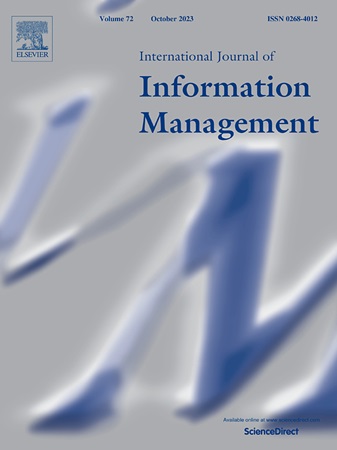影响企业量子计算采用意向的因素:创新采用过程视角
IF 27
1区 管理学
Q1 INFORMATION SCIENCE & LIBRARY SCIENCE
International Journal of Information Management
Pub Date : 2025-09-30
DOI:10.1016/j.ijinfomgt.2025.102978
引用次数: 0
摘要
随着量子计算技术的进步,企业开始考虑用量子计算取代或共同利用现有的经典计算资源。尽管对采用量子计算的考虑因素进行了初步研究,但缺乏对影响采用量子计算技术的条件进行调查的研究。因此,本研究的目的是识别和分析驱动或阻碍公司采用量子计算技术的关键因素。本研究以创新扩散理论为基础,结合多种新兴技术采用的见解,旨在扩展对量子计算采用动态的理解。具体而言,本研究借鉴创新扩散理论和现有的与多种新兴技术采用相关的文献,提出以下研究问题,以确定影响量子计算采用意愿的因素。该研究采用了顺序解释设计,首先通过文献和对11位量子计算专家的访谈来探索主题,然后通过对韩国公司内250名IT决策者的问卷调查来量化结果,并使用PLS-SEM和MGA进行分析。研究结果表明,对量子优势、量子优势、持续预算分配和监管支持的信念显著正向影响量子计算的采用,而组织阻力的负面影响最为显著。此外,企业规模和行业显著地调节了这些采用意愿。有趣的是,尽管存在不确定性,但许多公司都表达了采用量子计算的愿望。从理论上讲,本研究通过将创新扩散理论应用于高度复杂和新兴技术(如量子计算)的采用,为创新扩散理论做出了贡献。实际上,研究结果通过阐明促进量子计算采用必须解决的关键驱动因素和障碍,为政策制定者和商业领袖提供了可操作的启示。本文章由计算机程序翻译,如有差异,请以英文原文为准。
Factors influencing the adoption intent of quantum computing in enterprises: An innovation adoption process perspective
With recent advancements in quantum computing technology, companies have begun considering replacing or jointly utilizing their existing classical computing resources with quantum computing. Despite initial research on the examination of the adoption considerations for quantum computing, there is a lack of studies investigating the conditions that influence the adoption of quantum computing technology. Therefore, the purpose of this study is to identify and analyze the key factors that drive or hinder companies' intention to adopt quantum computing technology. Building on the theory of innovation diffusion and integrating insights from the adoption of multiple emerging technologies, this research aims to extend the understanding of quantum computing adoption dynamics. Specifically, drawing on the theory of innovation diffusion and existing literature related to the adoption of multiple emerging technologies, this research proposes the following research questions to identify the factors influencing the adoption intention of quantum computing. The study employed a Sequential Explanatory design, first exploring the topic through literature and interviews with 11 quantum computing experts, then quantifying findings with a questionnaire survey with 250 IT decision-makers within Korean companies, analyzed using PLS-SEM and MGA. Research findings revealed that belief in quantum superiority, quantum advantage, continuous budget allocation, and regulatory support significantly and positively influenced quantum computing adoption, whereas organizational resistance had the most substantial negative impact. Furthermore, firm size and industry significantly moderate these adoption intentions. Interestingly, companies expressed a desire to adopt quantum computing despite uncertainties. Theoretically, this study contributes to innovation diffusion theory by contextualizing its application to the adoption of a highly complex and nascent technology such as quantum computing. Practically, the findings offer actionable implications for policymakers and business leaders by illuminating the key drivers and barriers that must be addressed to promote quantum computing adoption.
求助全文
通过发布文献求助,成功后即可免费获取论文全文。
去求助
来源期刊

International Journal of Information Management
INFORMATION SCIENCE & LIBRARY SCIENCE-
CiteScore
53.10
自引率
6.20%
发文量
111
审稿时长
24 days
期刊介绍:
The International Journal of Information Management (IJIM) is a distinguished, international, and peer-reviewed journal dedicated to providing its readers with top-notch analysis and discussions within the evolving field of information management. Key features of the journal include:
Comprehensive Coverage:
IJIM keeps readers informed with major papers, reports, and reviews.
Topical Relevance:
The journal remains current and relevant through Viewpoint articles and regular features like Research Notes, Case Studies, and a Reviews section, ensuring readers are updated on contemporary issues.
Focus on Quality:
IJIM prioritizes high-quality papers that address contemporary issues in information management.
 求助内容:
求助内容: 应助结果提醒方式:
应助结果提醒方式:


